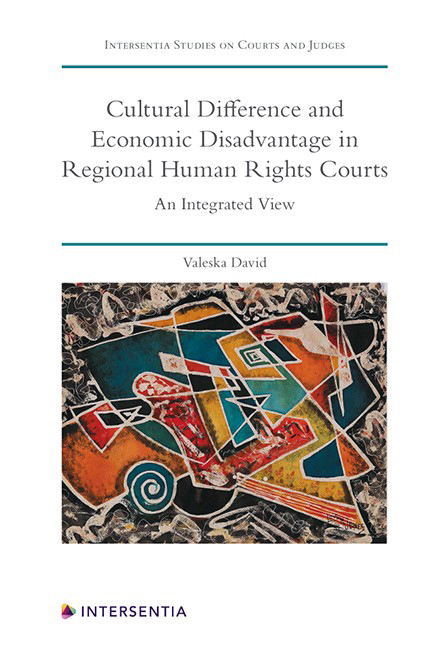Book contents
- Frontmatter
- Dedication
- Foreword
- Preface
- Acknowledgements
- Contents
- List of Cases
- Introduction
- PART I THEORETICAL FOUNDATIONS
- PART II RETHINKING CULTURAL DIFFERENCE FROM AN INTEGRATED PERSPECTIVE ON HUMAN RIGHTS
- PART III RETHINKING ECONOMIC DISADVANTAGE FROM AN INTEGRATED PERSPECTIVE ON HUMAN RIGHTS
- Conclusion
- Bibliography
- Index
- About the Author
Chapter 4 - An Integrated Approach to Economic Disadvantage in the European Court of Human Rights
Published online by Cambridge University Press: 21 July 2020
- Frontmatter
- Dedication
- Foreword
- Preface
- Acknowledgements
- Contents
- List of Cases
- Introduction
- PART I THEORETICAL FOUNDATIONS
- PART II RETHINKING CULTURAL DIFFERENCE FROM AN INTEGRATED PERSPECTIVE ON HUMAN RIGHTS
- PART III RETHINKING ECONOMIC DISADVANTAGE FROM AN INTEGRATED PERSPECTIVE ON HUMAN RIGHTS
- Conclusion
- Bibliography
- Index
- About the Author
Summary
INTRODUCTION
The question of how the European Court of Human Rights can deal with rights claims of poverty and socio-economic disadvantage has gained growing attention in the last decade. Following the most recent economic crisis, people living in European countries have seen an increase not just in the proportion of the population in and at risk of poverty, but also in income inequality, insecure living conditions and regressive social policies.It is therefore not surprising that scholars and practitioners alike had shown renewed interest in what the ECtHR can offer to the protection of the rights of those experiencing poverty and social service cuts. The present chapter can be seen as contributing to these eff orts, but from a quite distinctive point of view. The chapter basically examines the complex ways in which people's experiences of socio-economic deprivation are interrelated with a range of rights, interests, harms, inequalities and social positions. Having regard to the fact that it is usually easier for a court like the ECtHR to embrace a categorical and fragmentary than a comprehensive and relational line of thought, the chapter analyses claims of socio-economic disadvantage from an integrated perspective. Within this framework, the chapter discusses different types of claim. Some are framed as protection against destitution (violations resulting from extreme poverty); others contest the detrimental effect imposed by certain regulations or practices which are insensitive to people's socio-economic situation (fees for courts and other services, housing regulations, denial of medical attention); others complain of excessive policing or interference with their rights because of poverty (family separation, prohibition of begging); while there are also claims of discrimination on poverty-related grounds.
Given that the ECHR does not contain a right to be free from poverty or other specific references to socio-economic disadvantage (save for Article 14's prohibition of discrimination on grounds of'social origin’ or ‘other social status’), a relatively wide range of rights is mobilised in the cases examined. These include, inter alia , the right to life (Article 2); the prohibition of torture and degrading treatment (Article 3); the right to private and family life (Article 8); the prohibition of discrimination (Article 14); and the right to property (Article 1 Protocol No. 1) ECHR. The discussion proceeds as in previous chapters.
- Type
- Chapter
- Information
- Cultural Difference and Economic Disadvantage in Regional Human Rights CourtsAn Integrated View, pp. 223 - 298Publisher: IntersentiaPrint publication year: 2020

